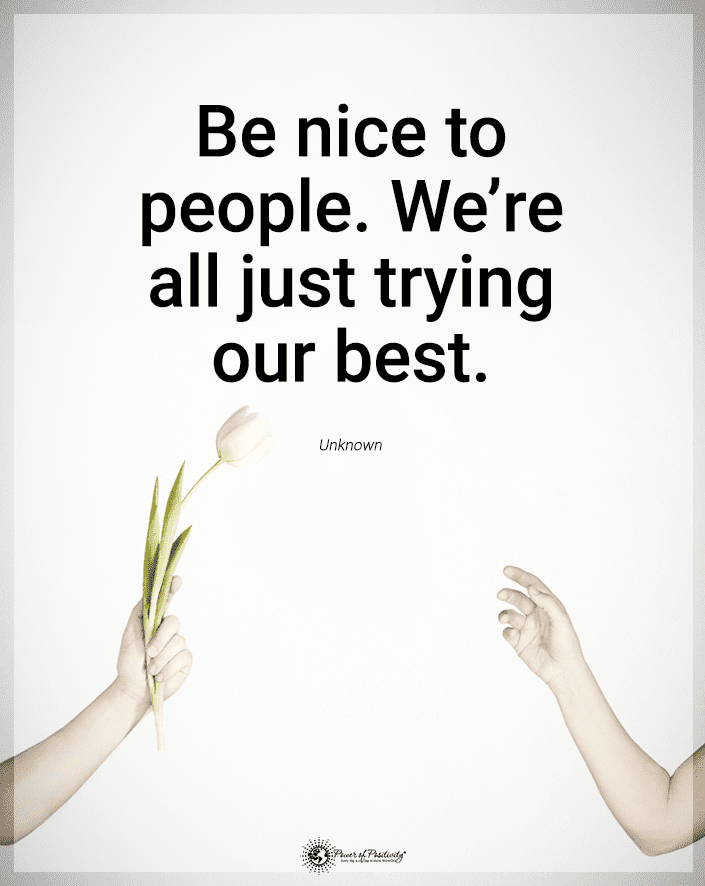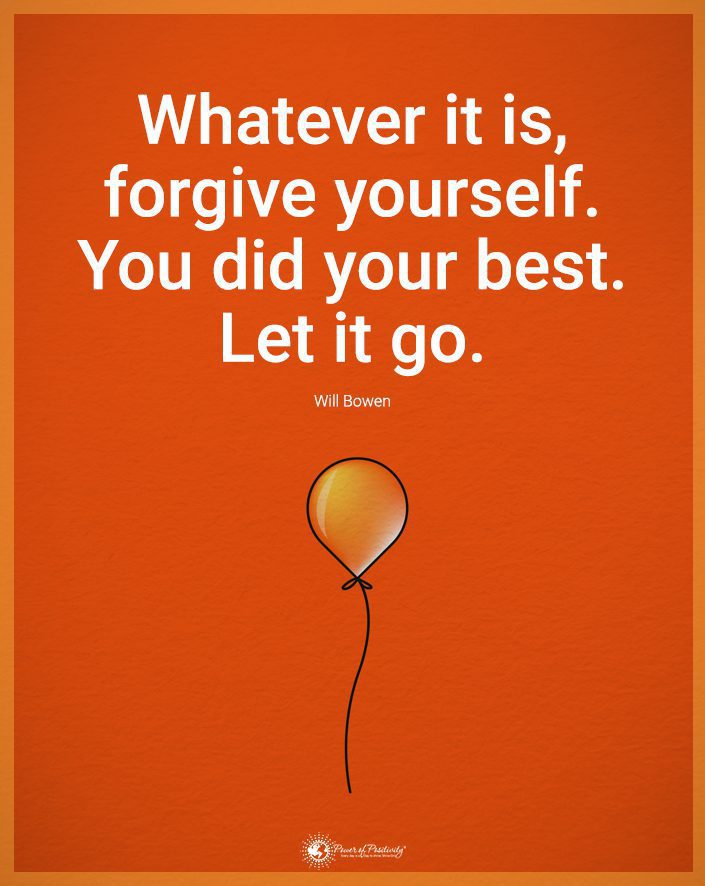Regret is a powerful thing that can slowly but surely take over your life. On the one hand, you likely know that living in the past is unhelpful and unproductive. On the other, you may feel you deserve the negative emotions you’re experiencing thanks to the subject of your regret. Ultimately, keeping remorse within you and leaving it unprocessed is unhealthy. Here’s how to release regret in four steps.
1. Identify and Acknowledge Your Regret
Many people who feel remorse and regret try to protect themselves from the pain of that regret through denial. But, unfortunately, that’s why it can take so long to admit that regret exists. So by the time you can pinpoint regrets, it’s been so long that you no longer view them realistically.
As with all instructions designed to help you overcome something difficult, the first step is to identify and acknowledge the existence of that difficult something. You cannot face, overcome, process, or reflect on something you cannot recognize or acknowledge. For example, regret may occur because of something you blame yourself for doing or for not doing, and it may involve feelings such as:
- Anxiety
- Loss
- Anger
- Sadness
- Shame
- Remorse
- Overthinking
- Defeat
- Hopelessness
- Embarrassment
- Stress
These emotions are normal effects of being overly regretful, and it’s a prime example of how studies show the negative effects of regret and well-being. Worse still, you can get trapped in regret if you don’t release it, meaning these emotions will worsen further and further. So acknowledge and accept these feelings so you can think about them healthily. Use specific terms to refer to your emotions to acknowledge them.
Regret can also arise from a wide variety of different situations and circumstances. There’s no such thing as something too silly or “trivial” to be a regret. Of course, this emotion can take various forms for different people. Examples of subjects that may be the source of regret include:
- Family – such as not settling an issue with a now-passed family member, not spending more time with your kids, drifting apart from your cousins, not putting more effort into a marriage, or not raising your kids how you want to.
- Lifestyle – such as moving to the wrong town, not exercising enough in your youth, giving up a hobby or skill, or not saving enough money in the past.
- Work – such as working too much, choosing the wrong career, not taking up a life-changing job offer, or going into business with the wrong person.
It is also essential to identify helpful or productive feelings of regret. When used well, some types of regret may propel you to do better, learn, change, and grow, and it won’t drag you down or make you unhappy. Of course, these regrets still need to be processed, but you may not find it necessary to “release” them in the same way as unproductive regret.
2. Express the Regret to Yourself
To release something, you must express it. Nothing ever gets properly released without it being said. It can be tough to admit to things that hurt deeply, but it would be counterproductive to bottle them up.
Besides, studies show that emotional repression amplifies and worsens feelings over time in your subconscious, sometimes twisting the initial feeling into something uglier. As a result, you may lash out at others, behave in unhealthy ways, and experience worse feelings that you don’t understand the roots of.
This is why expressing your feelings is crucial to healing and releasing regret. You can do this in the following ways:
· Write An Apology To Those You’ve Hurt
You are not entitled to anyone’s forgiveness, nor are you entitled to their audience. And even if they wanted to hear from you, sometimes you’re not personally prepared for that process or to be reasonable and rational about it. So that’s why you can begin to release how you feel by writing an apology to the people you’ve hurt and that are part of the regrets you experience.
Write everything you feel in these letters, even if you would never say it to those people. You never have to show these letters to anyone, so write without fear of judgment. This can help you to process the most painful experiences so you can truly feel them, paving the way for more analytical reflection later.
· Write Letters To Yourself
Writing to yourself regularly, whether in a journal or by other means, is a beautiful way to process your emotions. You can write to your younger self, future self, or even your current self. Write these notes to yourself daily.
You can re-read these letters regularly, after certain intervals, or never. The goal is to express how you feel in a judgment-free zone and gently, as if writing to a friend who needs to hear a hard truth but who you also love dearly.
· Seek Therapy to Overcome the Remorse or Regret
When regret is very powerful, you may benefit from seeking professional help from a licensed mental health professional. Finding a therapist who feels like the “right fit” for you may take a while, but the process will be very much worth it. A professional provides an unbiased, third-person perspective while teaching you the tools you need and can use to progress in your life.
3. Be Kind To Yourself When You Release Regret
Regret can drive you to think the worst possible things about yourself. When consumed by guilt and shame, it is tough not to view yourself as despicable in many ways. Therefore, it is essential to release regret by being kind to yourself.
While you can admit the errors of your ways and take accountability for your missteps, it is equally important to remember that you are human. You, just like everyone else, are a human being, which means you’re going to make a few significant mistakes in your life. So don’t hold yourself to standards you wouldn’t hold anyone else to!
· Distract Yourself
You don’t deserve to wallow in sadness forever! Instead, spend time immersing yourself in new hobbies, enjoying things you’ve always liked. Or distract yourself with something that makes you feel good. While distractions can be taken too far and eventually used as a crutch or form of denial, they’re also useful so you can take a break and recharge. You can’t release regret, process emotions, learn lessons, or make amends if you’re burned out from all that remorse.
· Forgive Yourself; Don’t Carry the Remorse
Regret is often a source of powerful resentment that can damage your relationship with others and, ultimately, yourself. This is why it is endlessly crucial that you practice self-forgiveness. Own up to how you feel and what you did, but show yourself the same forgiveness you would give to someone else. Recognize your growth. Recognize that you have changed. And, of course, recognize that you will not make these same mistakes again now that you have learned. Then, finally, forgive yourself and let your character speak for itself and who you are.
· Use Daily Affirmations to Overcome Feelings of Remorse
Don’t define yourself by your past regrets. Daily affirmations are a great way to remind yourself about who you are, what you stand for, and what truly matters. This will allow you to rebuild your confidence with positive words and ideas.
4. Transform Regret Into Something New
Regret is a complex emotion that can be overwhelming, consuming, and confusing with everything it touches. But if you allow yourself to use it productively, it can be transformed into an emotion or experience that will serve you much better. There is something very powerful about overcoming regret and using it as a tool for your betterment! Here are some things that regret can be transformed into:
· Empathy
Feeling regret and learning to manage it means you’re uniquely empathizing deeply with others who have regrets. They don’t even have the same regrets as yours. Therefore, you’ll be able to understand the confusion and pain they’re experiencing on a level that others may not. In addition, extending your kindness to others can often give you a sense of purpose, which is also a helpful way of dealing with regret and other negative emotions while improving well-being, say studies.
· Use Remorse to Set New Goals
When you learn to process regret, you can use it to shape your future goals. While you shouldn’t use regret as the sole motivating factor for all future goals, you can use their experience and knowledge to create better future goals. You can also use regrets to inspire you to repair old mistakes in a healthy way.
· Gratitude
Regret often involves statements like “I should have,” “Why couldn’t I?” and “What if.” Instead of using those statements, you can reflect on the past with a reframed and more positive lens.
For example, do not think, “I can’t believe I didn’t finish university!”
Instead, you should say, “I’m glad that there’s no age limit on going to university,” or “I am grateful for the experience I had outside of the university.” Research states that gratitude is a huge and essential part of healthy well-being and can significantly improve your happiness, which will also help you process regret.
· Lessons Learned From Regret
One of the most valuable parts of regret is the lessons it can teach you. When you experience regret, it’s because there was something you missed or a mistake you made, and that’s an incredible learning opportunity. So, find the lessons that each regret teaches you and resolve to learn intelligently from them. This is how you’ll ensure you learn from your mistakes, which can help you overcome regret much more quickly.
Final Thoughts On Some Ways To Release Regret For A Fulfilling Life
You don’t have to let regret rule your life. Remorse and the past teach you valuable lessons. They also hold you accountable; knowing that you have to move on with your life is essential. The things you’ve done or left undone are not what define you. Instead, you are defined by what you choose to do after your mistakes and the decisions you continue to make moving forward.

















 Community
Community

